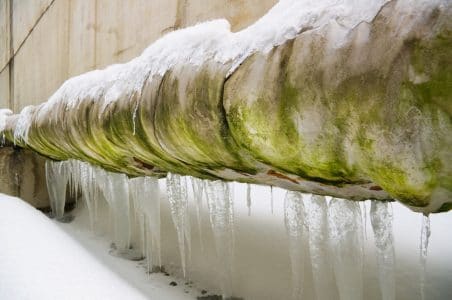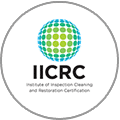You might be familiar with the pop culture adage by now: Winter Is Coming.
That means, aside from defending your home from White Walkers and making a thousand lists for the Holiday Season, you might want to think about frozen pipes.
Now that fall has arrived we can finally bundle ourselves in scarves, hats, and gloves to drink pumpkin spice everything. As we’ve discussed before, it’s time to prepare your house for the cold weather. As anyone who lives in Georgia knows winter can be wildly unpredictable.
Southerners are in the unique position of never knowing exactly when—or how—to prepare for a snowstorm. A good rule of thumb is to always have a 72-hour bag in your car and home. There is one thing that is easy to prepare for during before a snowstorm—preventing frozen pipes from bursting.
This simple precaution will help prevent severe flooding in your home during the holiday season and beyond. Georgians might not always be equipped to handle a snowstorm but avoiding frozen pipes is easy.
Tips to Avoid Water Damage from Frozen Pipes
- Let the Water Run. It doesn’t have to be warm water or a steady flow, but allowing your faucets to drip continuously will help prevent frozen pipes Also, a reminder to NOT use hot water to do this, it can drain your hot water tank causing even worse issues.
- Don’t Use Antifreeze. This should be obvious but it’s appropriate to bring up anyway—don’t introduce harmful chemicals into your water supply. Instead, use heat tape for any problem areas or exposed pipes.
- Keep the Warm Air In. If you have pipes in a garage keep the garage doors closed. Inside the home, keep your cabinet drawers open to allow warm air to circulate from within the house to the pipes. Furthermore, never keep your temperature below 55 degrees. Although your heating bill might suffer it’s far cheaper than having to fix a burst pipe.

So, what should you do if the worst should happen and a frozen pipe bursts?
A plumber should be your first call but, Reliable Restoration should be your second. While a frozen pipe burst can be costly and cause damage it is not the end of the world. Removing water quickly keeps water damage to a minimum – less time for the water to penetrate walls, furniture, floors and anything else in its path. After removing water, the floors and walls may look dry, but there is a good chance that moisture remains.
Most building materials are porous and will retain significant water; this water retention can cause building materials to warp, swell, or break down and can also cause mold damage. For proper disaster restoration, it is essential to dry and dehumidify properly with air movers, fans and dehumidifiers. As a final step, it is imperative to clean anything non-porous with sanitizers to keep your house safe from further damage.
At Reliable Restoration, we follow through on every step of your disaster restoration to assure that any water damage is contained quickly and restored to industry standards. We are available 24/7/365 for your repair needs whether it be water damage due to a busted pipe or fire reconstruction. After all, with Reliable Restoration, you family is our family. Call us at: 678-325-1633 or visit us at: https://choosereliable.com/






